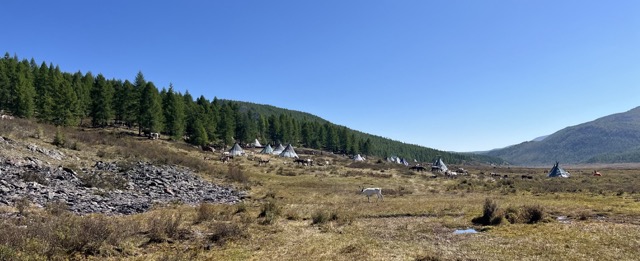The Reindeer Herding and Resilience project is a global initiative aimed at building a comprehensive knowledge base on the traditional practices of reindeer herders, focusing on land and pasture management.
Objectives, goals, outcomes
The Reindeer Herding and Resilience project aims to create a sustainable future for reindeer herding communities, ensuring their traditional practices are preserved and integrated into modern land management strategies.
Objectives:
1. Document and Assess Traditional Knowledge:
Collect and evaluate traditional knowledge related to land uses, land degradation, and food governance from indigenous reindeer herders globally.
Develop GIS-based maps and future scenarios to support integrated rangeland management.
2. Enhance Training and Educational Opportunities:
Develop and conduct training curricula for reindeer herders and youth on traditional knowledge, sustainable livelihoods, environmental agreements, and data analysis.
Facilitate cross-learning events and dialogues between herding communities and other stakeholder groups.
3. Develop Sustainable Management Practices:
Institutionalize sustainable landscape management approaches for global reindeer husbandry.
Create and test global indicators for sustainable rangeland management and pastoralism.
4. Knowledge Dissemination and Communication:
Develop a comprehensive knowledge management and communication strategy.
Establish an operational project portal to disseminate findings and facilitate replication.
Goals:
Empower Indigenous Communities: Strengthen the capacity of reindeer herders to manage their lands sustainably and participate in global environmental governance.
Promote Sustainable Practices: Integrate traditional knowledge with scientific research to address land degradation and promote sustainable rangeland management.
Enhance Community Resilience: Build resilience within Arctic and nomadic pastoralist communities through education, training, and capacity building.
Raise Awareness: Increase global awareness of the importance of indigenous knowledge and the contributions of reindeer herders to environmental sustainability.
Outcomes:
1. Institutionalized Sustainable Landscape Management:
Gender-sensitive traditional knowledge collected and made available globally.
GIS-based maps and participatory monitoring systems developed and utilized.
2. Enhanced Capacity of Nomadic Pastoralist Communities:
Comprehensive training programs and workshops conducted for reindeer herding youth and communities.
Cross-sector knowledge exchange events organized.
3. Global Support and Implementation of Good Practices:
Knowledge management and communication strategies developed and implemented.
Operational project portal established for dissemination and replication of project findings.
Good practices and lessons learned documented and shared globally.
Photo: East taiga, Tsagaannuur, Mongolia, 2024 (c) ICR
VISIT THE WEBSITE https://reindeerherdingandresilience.org FOR MORE INFORMATION AND NEWS FROM THE PROJECT



